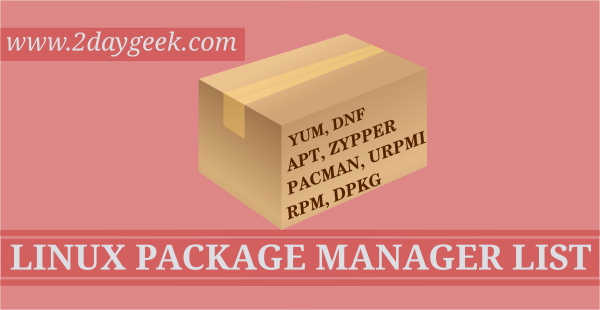
Linux Expert should knows, list of Command line Package Manager & Usage
As a server administrator, we knows package manager is one of the top contributor on Linux environment. Are you Linux Expert? you want to know list of Command line Package …
Linux Expert should knows, list of Command line Package Manager & Usage Read More
